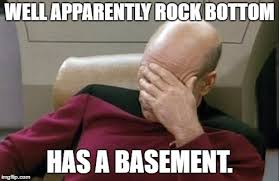"Am I Actually Addicted?" - A No-BS Guide from Someone Who's Been There, Done That, and Now Has the Counseling Degree to Prove It
Look, I've got a unique view on this whole "am I actually addicted?" question. Not just because I've spent the last six years as a substance use counselor, but because I asked myself the same damn question back when I was convinced I had everything "totally under control." (Narrator: I did not, in fact, have anything under control.)
Here's the thing - before I was the one giving the advice, I was the one trying to convince my own counselor that I only did everything under the sun on "special occasions." (Plot twist: I considered making it through Tuesday a special occasion.) Now, with both personal recovery and professional experience under my belt, I'm going to translate the official diagnostic criteria into what I call "oh shit, that's me" moments - no sugar coating, no BS, just real talk from someone who's been on both sides of the desk.
Losing Your Off Switch (AKA The "Just One More" Lie)
Official term: Impaired Control
Real talk:- You've said "just two drinks" so many times your friends have turned it into a drinking game
- Your dealer is saved in your phone as "DO NOT CALL - SERIOUSLY" (yet here we are)
- "I'll start fresh Monday" has become such a frequent phrase you're considering getting it tattooed
- You keep using even when your internal voice is screaming "DUDE, NO" in five different languages
The Incredible Shrinking Life (Where Did Everybody Go?)
Official term: Social Impairment
Real talk:- Your group chat thinks you died six months ago
- Your boss's "can we talk?" emails are piling up faster than your laundry
- Your Amazon Prime driver is literally your most consistent relationship
- Your only friends are people you'd never trust to watch your phone
The Risk vs. Reward Equation Gets Fuzzy (Or: Decisions That Would Make Your Mother Cry)
Official term: Risky Use
Real talk:- You've got more hiding spots than a squirrel with a hoarding problem
- That dealer who looks like a rejected extra from Breaking Bad? Suddenly seems trustworthy at 3 AM
- Driving while high because "I actually drive better this way" (Narrator: They don't)
- You're mixing substances with the confidence of a mad scientist and the wisdom of a potato
Your Body's Getting Real With You (The Physical Rebellion)
Official term: Pharmacological Indicators
Real talk:- Your tolerance is so high you could probably drink a frat house under the table
- Without your morning "fix," you shake more than a chihuahua in a snowstorm
- You need substances just to achieve what most people call "slightly below average"
- The thought of running out gives you the kind of panic usually reserved for seeing your ex in public
Here's the thing about addiction - and this is where my harm reduction perspective comes in: You don't need to hit rock bottom to deserve help. Rock bottom is just the place where you stop digging. Some people have a basement, others have a wine cellar, but everyone's bottom is different.
The Reality Check (The "Where You At?" Scale):
- Mild: 2-3 boxes checked (Your life's getting messy)
- Moderate: 4-5 boxes checked (Your life's about as organized as a tornado in a trailer park)
- Severe: 6+ boxes checked (Your life's gone full dumpster fire)
What They Don't Tell You in Counseling School (But I Learned the Hard Way):
These patterns show up differently for everyone. Maybe you're still crushing your career while your personal life looks like a reality TV show gone wrong. Or maybe you're maintaining perfect Instagram appearances while your bank account screams in terror every time you hit up your dealer.
Why This Matters:
Getting real about where you're at isn't about joining the "my life is a mess" club (though meetings do have great snacks). It's about understanding your relationship with substances so you can make informed decisions. Maybe that means quitting, maybe that means cutting back, or maybe that just means not mixing tequila with decisions about your ex.
The Bottom Line:
If you're reading this thinking, "Well, shit," welcome to the club. You're not broken, you're not doomed, and you're definitely not alone. You're just human, and humans sometimes get tangled up with substances. It happens. What matters is what you do next.
Next Steps:
- Talk to someone who isn't currently high (professional preferred, but hey, baby steps)
- Track your use (there are apps for this - technology finally doing something useful)
- Think about what safer use looks like (because "YOLO" isn't actually a harm reduction strategy)
- Remember: asking for help isn't admitting defeat - it's more like calling tech support for your life
Remember, as someone who's been on both sides of this fence: Progress isn't about perfection. It's about being slightly less messy today than you were yesterday. And sometimes, that starts with simply asking, "Damn, am I actually addicted?"
And if you're still not sure? That's what professionals like me are for. We're basically like substance use Sherlocks, minus the cool hat. (Though I've been lobbying for office deerstalkers for years.) Trust me, whatever you're going through, I've either done it, seen it, or heard a story about it that would make your current situation look like a Disney movie.-Belle-










